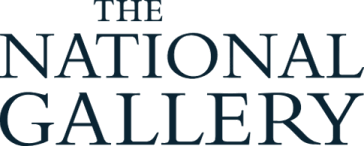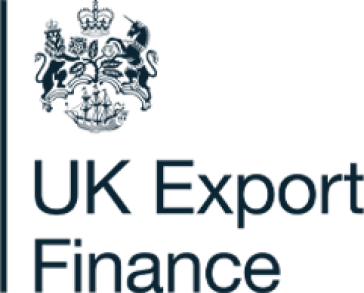Introduction
Financial reporting is one of the most important roles a finance department has. What is financial reporting and how do you ensure it’s in place at your organisation? Our handy guide contains everything you need to know about the process, why you should bother and will protect you from any compliance pitfalls.
What is financial reporting?
Financial reporting is how a business shows its financial data to key figures both internal and external. Think of it like your company MOT. It’s a way to show the financial health of your company, and to get an understanding of where improvements can be made.
What is the purpose of financial reporting?
If your company wants to keep track of some of its most important assets and costs and to present that information as clearly as possible, then financial reporting is important. Every single part of the business is affected by finances, so you need data to make sure you’re being held accountable Without it, the broader finance team won’t be able to keep the rest of the business informed. That can lead to all kinds of issues.
Why is financial reporting important?
There are loads of reasons that financial reporting is important. From protecting you from compliance issues to helping you raise capital, having clear records can transform your business in a variety of ways. Here are some of the most important.
Raising capital
When the time comes to look for investors and raise capital (from a wide variety of sources) those investors are going to want to be certain they’re going to see a strong return on investment. Strong and accurate financial reporting can give them this confidence to move forward.
Reassurance
Without reassurance, stakeholders won’t want to invest, and customers won’t want to shop with you. Good reporting can support this. Financial reporting is the best way to give a strong, authoritative details about the health of a company.
Financial analysis
Measuring key performance indicators and other forms of success requires coherent data presented in a way that makes sense to people who aren’t finance professionals. Financial reporting can make for a solid foundation from which the rest of the business can conduct critical analysis.
Legal and compliance
When auditors come knocking, your paperwork needs to be clear and in order so they can understand everything is above board. Likewise, clear reporting can help you spot any discrepancies and fix them before it’s too late.
Financial transparency
Transparency helps you build trust among stakeholders, current customers and potential customers. Even when things aren’t going as well as you might like, being able to point to issues clearly helps people know you understand the situation. Owning your situation and being able to understand it is a lot more comforting than a ‘oh don’t worry about it, it’s all in hand’.
What are the benefits of financial reporting?
There are several key benefits to financial reporting that make it a great addition to any business. Here are some of the most important ones that you can expect to see.
Identifying trends
A lot of the finance function is built around anticipating changes and trends and using that forecasting to drive the direction of the business. You can’t do that without strong financial reporting, as you won’t have all the data you need to make informed financial decisions.
Managing cash flow
Simply put, it’s a lot easier to maintain a healthy cash flow when you know exactly what money is coming in and what’s going out. Financial reporting ensures everyone can see how much money is available and prevents reckless unfunded spending.
Managing working capital
You need to be able to meet your short-term operating costs and short-term obligations. Financial reporting ensures you can track accounts payable, inventory and cash.
Facilitating budgets and forecasts
Good financial planning is key to having accurate and useful budgets, as well as being able to forecast accurately. Forecasting will ensure you can predict potential problems before they become a big concern which will give you greater agility and resilience when big changes are on the horizon.
Optimising operations
Having a clear view of your financial situation helps you get rid of bloat, ensuring your operations are as efficient as possible without wastage. Doing so actually creates to a positive feedback loop. Optimised operations get you more money!
Improving stakeholder relationships
Stakeholders who have access to clear data will feel more at ease working with your company. Having strong financial reporting builds trust and confidence in your decisions. That leads to more investment, happier employees and more engagement with your company.
Financial reporting requirements and regulations
Financial reporting does come with a degree of responsibility, as you must keep accurate records and ensure they are auditable. A lot of the following falls under the Companies Act 2006 (CA 2006), which requires that the annual accounts of a company are true and fair. There are two main frameworks that UK listed companies can choose from.
UK GAAP
Generally Accepted Accounting Practice in the UK (UK GAAP) are accounting standards used within the UK. Think of it as a rules-based system. They include the following:
- FRS 100 Application of Financial Reporting Requirements
- FRS 101 Reduced Disclosure Framework
- FRS 102 The Financial Reporting Standard applicable in the UK and Republic of Ireland
- FRS 103 Insurance Contracts
- FRS 104 Interim Financial Reporting
Here is a resource going into detail of some of the requirements of UK GAAP.
IFRS
International Financial Reporting Standards (IFRS) are a set of standards used by companies around the world to ensure consistent accounting practices are followed. The UK GAAP is based on the IFRS but is simplified.
The framework it is best for you to adopt will depend on the exact nature of your company. If you’re just based in the UK, you can choose between UK GAAP or IFRS, but if you have some overseas operations (or planning to in the future) you might need to move towards IFRS.
Tax regulations
Your financial reporting should also account for tax regulations and may be required to support any issues you have with HMRC. They’ll want to see your financial reports as part of their investigations, and as part of your yearly tax filings.
Industry-specific regulations
Different industries have different requirements of their financial reporting in order to remain compliant. Charities and higher education providers are particularly infamous for needing specific regulations, but other industries need nuance too.
The main types of financial reports
The kinds of financial reports that are useful to you will depends on the size and shape of your business, but there are numerous kinds of reports you can use. Understanding each will make it much easier to prepare your reports.
Income statement
This is one of the most important forms of financial report. It enables you to see the money coming in. It will also record your losses and expenses, so you can get an idea as the whether you’ve turned a profit or are heading for a loss.
You may also see these referred to as profit and loss statements but there’s not a huge difference between the two.
Balance sheet
A balance sheet records your assets, liabilities and equity. This will give you an idea of what your business is worth over a certain period.
This provides an easier way for business owners to identify if they can meet their obligations.
Cash flow statement
These statements record how much money is entering and leaving the business in the immediate present and future. This gives you an idea of what cash you actually have to hand.
Cash flow statements don’t take things like credit into account so they’re very useful for figuring out how much capital you have at the time.
Month-end reports
This is a process that companies use to make sure that their monthly transactions are recorded accurately. It will typically contain operational data, key metrics and dashboards that generate insights.
Statement of changes in equity
You may also see this referred to as a statement of retained earnings. It will record the equity balance at the start of a certain period, then adjust it to get the final balance for the period. This is largely used to help investors trust your company, as it’s primarily to inform investors how things are goin
Consolidated financial statements
This option is only really relevant to entities that are divided into multiple divisions and subsidiaries. Consolidated financial statements are what you get when you put together all the subsidiaries and the parent company.
Financial dashboard
Financial dashboards are a way to understand your financial reports more easily.
Spreadsheets are amazing, but they’re hard to scan, and very difficult for a layperson to understand at a glance. Dashboards take the data you’re using and put them in a more digestible and visual format.
CFO dashboards
CFO dashboards are more specifically aimed at Chief Financial Officers (CFOs). They will cover strategic and analytical efforts of all financial aspects of your organisation, as CFOs have the most responsibility when it comes to driving the direction of a finance department and keeping a variety of stakeholders informed.
Who are the main users of financial statements?
There are many groups that will get use out of financial statements, but they all use them in a slightly different way. Here are some of the most important users you’ll need to consider.
Lenders
Lenders don’t want to throw money down a hole. They have to be certain that they’re lending money to entities that will pay them back with interest. Financial reports give them the most accurate picture possible. It can even lead to better conditions for your loan.
Creditors
Once a loan or credit is offered, those creditors will want to be certain that things are continuing as expected and kept informed of any changes that may impact their payback period. Financial reporting makes this possible.
Investors
Sensible investors will want to see financial statements before making any decisions. Once they’ve committed, they’ll want to be informed if their investment is paying off, and if it isn’t that the company understands why and is taking steps to fix the problem.
Customers
If your customers are considering you for a major contract, they’ll want to see your financial statements to ensure you’re stable enough to stay in business long enough to supply and support what they want. No one wants their key supplier to go bust at the worst possible moment!
CFOs
CFOs need to understand everything that’s going on financially in the company and be able to report on that the rest of the board. The financial health of the company informs every other branch so being able to do this is critical.
Senior management
While they don’t need to understand things in as in-depth a way as a CFO would, senior management will still make use of financial statements to understand the financial health of your company and make decisions accordingly.
The government
Financial statements will be used to keep the government informed about how much tax you’re paying. HMRC obviously has the most interest in your financial statements, but regulatory bodies like the Competition Commission will also want this information to help make decisions about takeovers and grants.
Nail financial reporting with MHR
Financial reporting can feel like a minefield at times, and keeping things accurate is of the utmost importance. Finance from MHR is your key to simplifying the whole process without stress and without burdening your team with loads of complicated admin and technology to learn.
You’ll be able to drive informed financial planning with clear and accurate reports that reflect the true state of your business. Using a single source of data reduces the risk of errors and manual data entry, freeing your team to generate effective insights.
Protect your profitability and dodge the skill gaps that plague the industry, creating a healthier company for years to come.


































































